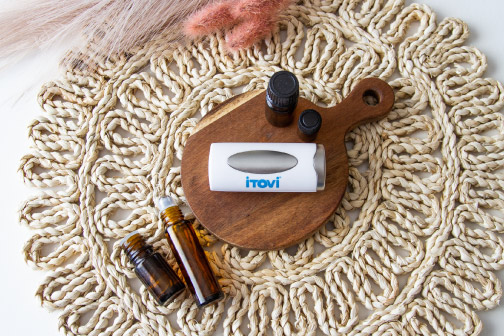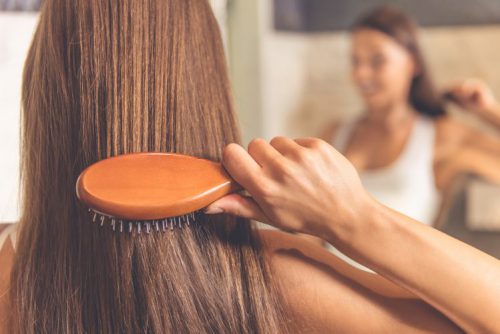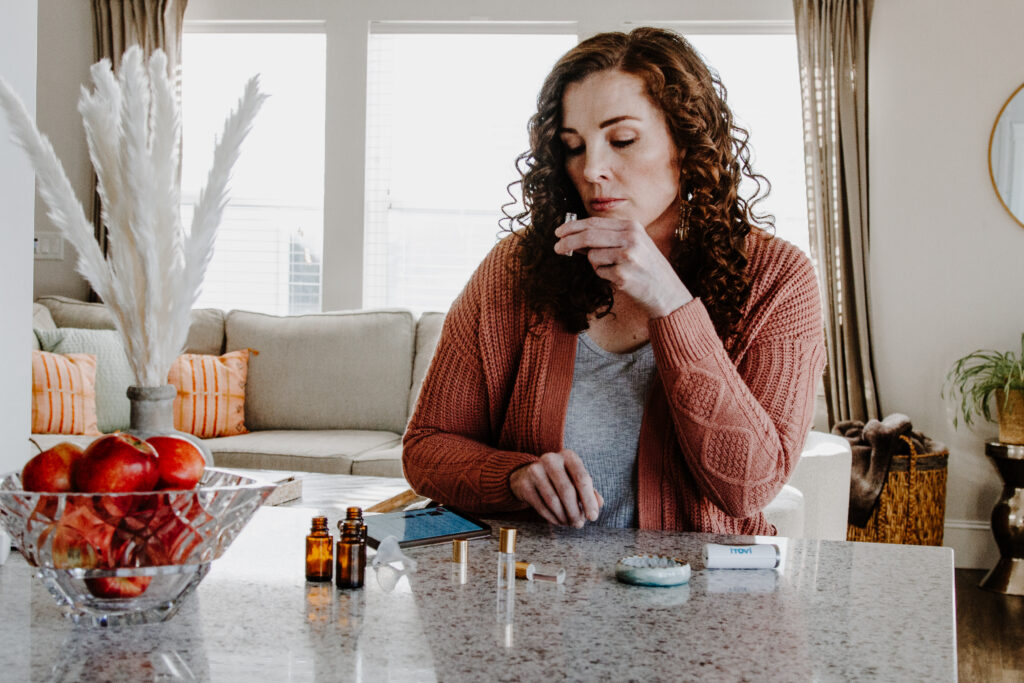
Moisturizing is one of the most vital steps of skincare.
Because the simple truth is—apart from oxygen, water is the #1 commodity our bodies need to function well and be healthy! And our skin, as the largest organ of the body, needs its fair share of it!
Fortunately, moisturizers don’t have to work all by themselves. Certain essential oils can be mixed into moisturizers—enhancing their effects, helping the skin retain moisture, delivering other benefits to the skin, and enhance your skincare experience with a great smell!
That said, it takes a little know-how in order to use moisturizers, with or without essential oils, to their greatest effect.
Why Use a Moisturizer?
Your skin needs moisture in order to stay healthy, vibrant, and (most importantly) to continue its job protecting your insides from chemical or physical damage.
And though your skin can get some moisture from your daily drinking, it isn’t enough!
That’s where moisturizers come in.
They help your skin both take in and lock in moisture so that your complexion stays pretty and healthy! And since being properly moisturized benefits every skin type (even more naturally oily skin types)—moisturizers are a staple of skincare!
What Kind of Moisturizer is Good for My Skin Type?
| If you have… | You may favor a commercial moisturizer that is/with… | You may favor a homemade moisturizer made with… |
| Dry/Aging Skin | Thicker
Oil-based Ceramides Niacinamide Hyaluronic acid Lipids Natural cholesterol Glycerin Glyceryl stearate Squalane |
Sweet Almond Oil
Oatmeal Olive Oil Beeswax Honey Vitamin E Coconut Oil Avocado Oil Rose Water |
| Oily Skin | Lighter
Gel/Water-based Vitamin B5 Ceramides Retinoids Niacinamide |
Jojoba Oil
Aloe Vera Milk Sunflower Oil Green Tea Lemon Olive Oil |
| Normal/Combination Skin | Gel-based
Glycerin Algae Green tea |
Avocado Oil
Jojoba Oil Sesame Oil Hazelnut Oil |
| * Solutions with Hyaluronic acid and Vitamin C are recommended for all skin types. | ||
| *Note: Popular ingredients for homemade moisturizers also include shea butter and aloe vera | ||
How Do I Use Moisturizer?
Ideally, applying moisturizer should be one of the very last steps of your skincare routine.
Firstly, because you don’t want to support the growth of any bacteria on your face or cause any pollutants on your skin to sink deeper into your pores—that’s why cleansing and exfoliating are done first. And secondly, because putting on your moisturizer after your toner and/or serum can help their beneficial ingredients sink deeper into your skin.
How to Apply Your Moisturizer
Wet your face a little with lukewarm water. This will help the moisturizer go on smoothly and help hydrate your skin even further.
After that, scoop, squirt, or otherwise get a small amount of moisturizer into your hand (a roughly marble-sized amount should do). And then gently massage it into your face, neck, and decolletage with sweeping motions that generally move upwards and outwards.
Can I Use Essential Oils in My Moisturizer?
Yes—some oils.
And of course, there are a few rules for how to use them safely.
See our Blogpost: The Basics of Skin Care & Essential Oils for general safety considerations and read on to learn specifically about essential oils in facial moisturizers.
And note here that, as with any oil you use in skin care, you may have to do a little work to find the oil that best works for you. Just make sure to:
- Do your research
- Do patch tests
- Be willing, while still following safety protocols, to experiment.
To get you started, here is a breakdown of a few oils that are popular mix-ins for moisturizers:
| Essential Oil | Pros | Cons |
| Helichrysum Oil |
|
|
| Rosemary Oil |
|
|
| Frankincense oil |
|
|
| Roman Chamomile |
|
|
| Rose |
|
|
| Ylang Ylang |
|
|
| Lavender Oil |
|
|
| Clary Sage Oil |
|
|
| Geranium Oil |
|
|
| Melissa Oil |
|
|
| Sandalwood Oil |
|
|
| Myrrh Oil |
|
|
| Learn more about specific essential oils, their benefits, contraindications, and more here. | ||
Conclusion
Exfoliators, toners, and serums can be fun, fancy, and useful in their way—but skincare experts across the world agree that moisturizing is a core step for any effective skincare routine!
Which is why it’s best to moisturize regularly with sound ingredients, including essential oils, that agree with your skin.
Fortunately, moisturizing can be quite an easy habit to develop, a soothing part of your daily routine, and an absolute game-changer for the health and appearance of your skin!
If you liked this review on essential oils and facial moisturizers, feel free to leave a comment below and check our other blog posts:
Essential Oils & Facial Cleansers
Essential Oils & Facial Exfoliation
Essential Oils & Facial Toners




